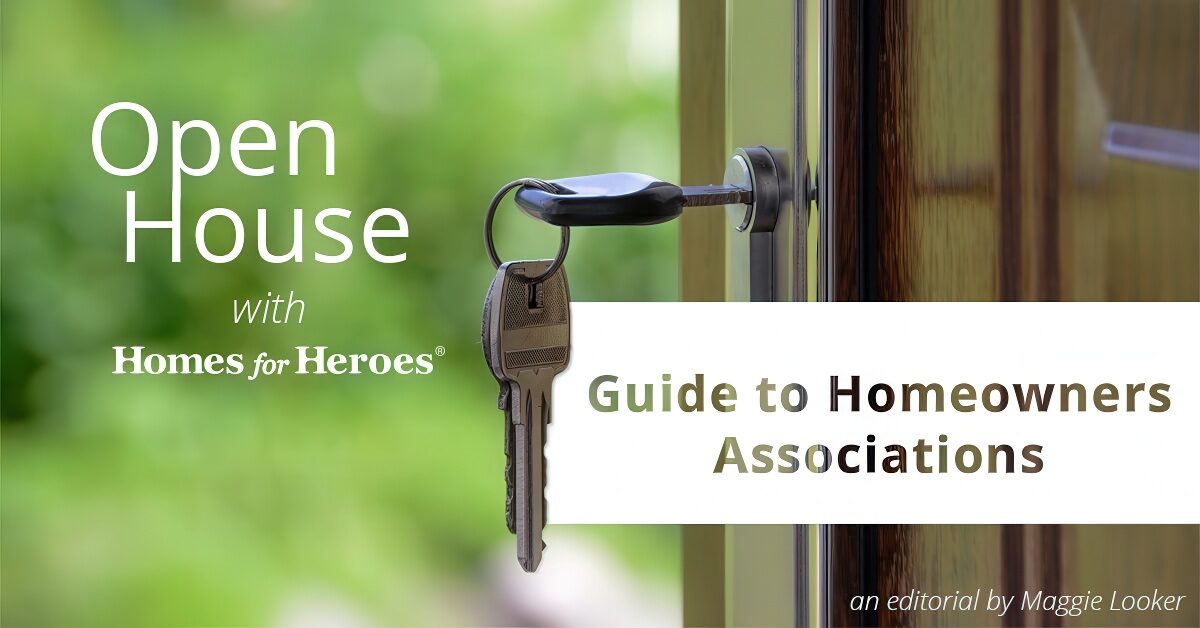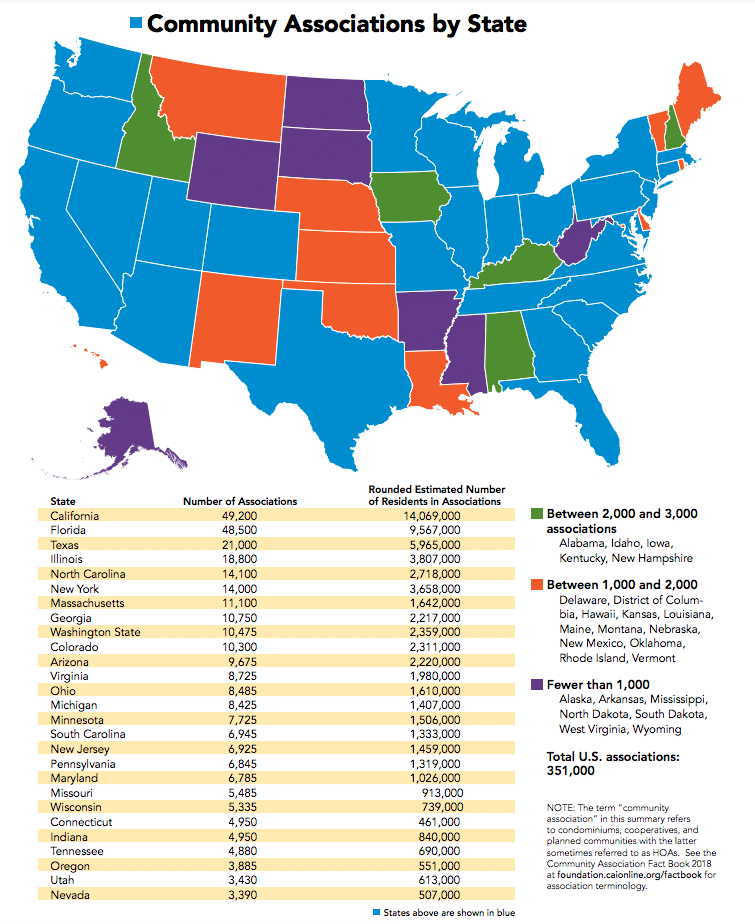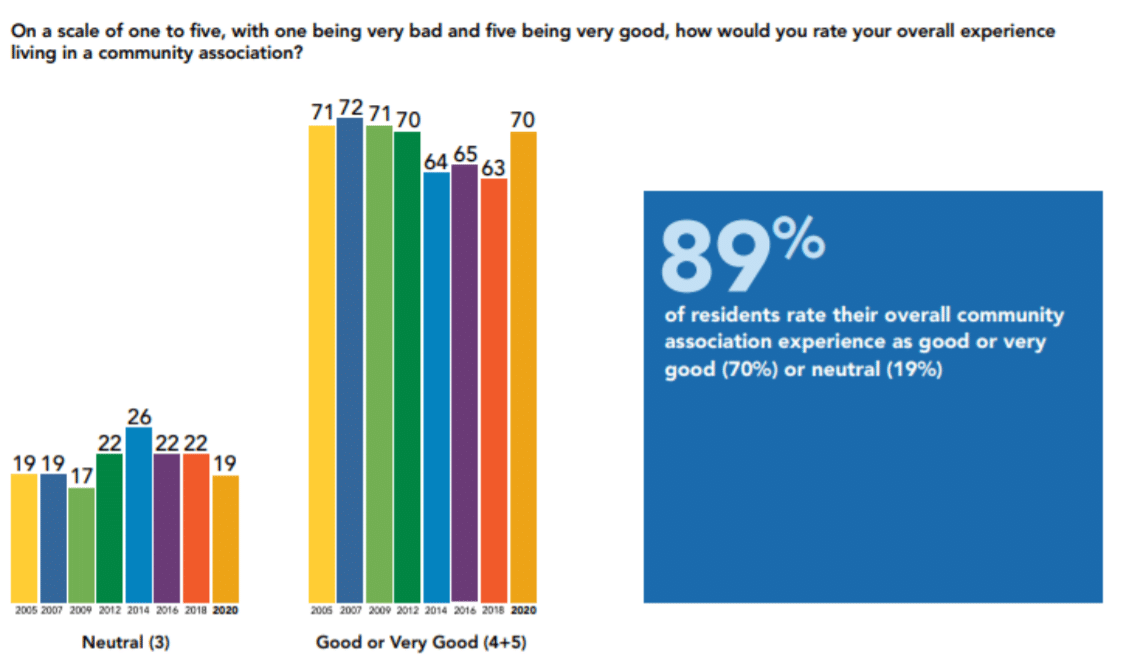
You might have heard of a homeowners association from a relative, coworker or friend. And your experience with a homeowners association is probably highly negative or highly positive, depending on your acquaintance’s experience. So, what exactly is this polarizing component of different communities? In this Open House, we’ll dive deep into what a homeowners association is and if they’re the right fit for you.
Homeowners What?
First of all, what is a homeowners association, or HOA? According to HOA Management, “a homeowners association is a private organization that consists of members of a community. It is headed by an HOA board, who are volunteers usually elected into position.”
Clear as mud, right? An easier explanation is: a collection of homes, condos, or other grouped homes that agree to certain bylaws and rules for their communities. They have a board of directors to enforce the bylaws and rules, and almost always collect dues in some capacity for community upkeep and amenities.
If you’ve never lived in an area that is governed by a homeowners association, you might want to know why someone would not only let rules dictate what they can and can’t do in their own home, but also pay extra to have these rules. The biggest reason people like homeowners associations is that they keep property values high and growing.
HOA’s & Property Values
When a HOA forms, the board of directors come up with their bylaws. This is a legal document that dictates how the organization must operate. Bylaws might be all-encompassing, covering everything from what types of flowers you can plant in your garden, to colors your house’s exterior can be, to how long you have to shovel your driveway before getting a fine. On the other extreme, they can have requirements as minimal as just making sure all houses have their lawns mowed and don’t play loud music at night.
There are no set requirements for a homeowners association’s bylaws, but whatever the bylaws say is acceptable is then the law of the land.
By creating a uniform look and feel for the neighborhood, and standards to keep things that way, neighborhoods, or in the case of condos, buildings, tend to look nicer, keep longer, and overall have been shown to keep property values rising.
History of Homeowners Associations
Homeowners’ associations have been around a lot longer than you might imagine. The first planned homeowners association was a community called Levittown in Long Island. It was created in the 1940’s as a way to offer low-interest housing to military veterans. They did not form an official association, but there were established rules that residents were expected to follow.
Similar communities started to form for the next several years, until the great migration in the 1960’s led people from the city to the suburbs. In 2021, there are estimated to be about 344,500 homeowners associations in the United States, accounting for approximately 25% of residential and condominium homeowners.
Benefits of Homeowners Associations
As I mentioned, the main benefit of a HOA is that they keep property values high. But there are several other benefits of belonging to a homeowners association. Several associations have shared amenities that any member of the HOA can use. Things like pools, parks, golf courses, and fully stocked and furnished clubhouses are included in some homeowners associations.
Some homeowners associations, especially when it comes to condos, also take care of yard work like mowing, gardening, and shoveling. They might also contract garbage and recycling services for the association, which are paid from funds collected through your dues. Some associations, like with townhomes, might also take on exterior maintenance like residing the entire community every so many years.
When you live in an association, you’ll pay dues as a way to have access and maintain these amenities. It’s up to each association to decide if you pay your dues monthly, quarterly, bi-annually, annually, or another timeframe.
HOA Governance
Associations that are true homeowners associations, with non-profit status and legal capabilities, have rules they need to follow in order to continue operating.
One thing they need to do is have a yearly business meeting. This can be called an annual meeting, business meeting, yearly meeting, or any other number of names. It is at this meeting that minutes are taken, past minutes are read, official business is conducted, any board vacancies or ends of term are voted on, financials reported, and new or upcoming projects are discussed and/or voted on.
Most homeowners associations meet more than this. At those meetings, topics can be anything from what to do with excess funds, what shared amenities need updating, or residents submitting plans for permitted work. Most meetings are open to the residents of the community to listen and voice opinions. This can vary between associations however and is not always required.
At HOA board meetings, residents who are not meeting the bylaws can also be discussed. If someone hasn’t mowed their lawn in the allotted time, the board can vote to take actions outlined in the bylaws. This usually starts with a written warning, but each association has their own bylaws. If issues start to get out of hand or not addressed, homeowners associations usually have authority to take the issues to City Officials and can use city, county, or state laws and statutes to enforce changes.
Downsides of Homeowners Associations
If there are positives to something, there are always negatives. There are two main issues with homeowners associations. The first issue is rules, and the second is the cost.
Association Rules
Obviously one perks of being a homeowner is that you can do whatever you’d like to your home. You aren’t renting, you don’t have a landlord, and you plan to be in your home long term. You can finally paint the walls any color, knock down walls, and enjoy your back yard. But when you live in a home with a HOA, some of these “freedoms” and limitations.
You might be able to do what you want inside your home. But, in order to have a contractor park a dumpster in your driveway for a two day demo, you might have to get permission from your HOA first. Or if you want to do some landscaping, you need approval before you go through with your plans. And sometimes, they aren’t.
For us, moving with two large-breed dogs to a home in a homeowners association that doesn’t allow fences was almost a deal breaker for us. But, for us to buy our dream home, we consider this a minor inconvenience. But for others, depending on what the issue is, it might make the home you’re looking to buy not worth the hassle.
Association Costs
The other issue is the cost of homeowners associations. If you have children and the association dues pay for a park, clubhouse, and pool, that might be a worthwhile investment. But if your association doesn’t provide those things, or amenities you just won’t use, you’ll need to determine if the extra cost is worth it to you for what it pays for.
Association Rules
Another downside of HOA can be the board of directors and the rules themselves. Some associations are very involved and meet often, while some might meet infrequently and be less hands on. If you need to submit plans for approval and your board needs to meet to vote on them, but they only meet once a quarter, that’s time lost waiting that could be productive. And if your plans are rejected at that meeting and you need to submit them again, that can be infuriating to wait even longer and potentially cost you money in delays.
Is a HOA Right for You?
For some, homeowners associations are perfect. Everything you could ever want right in your neighborhood, plus yard work and some utilities taken care of. For others, the loss of perceived homeowner freedom makes HOA’s a bad word. Make sure to let your real estate agent know your feelings about homeowners associations, whether positive, negative, or indifferent. If you are very against them, it can help your agent eliminate any potential showings in those communities.
If you’re a hero and you’re looking to buy a new home, you’re in the right place. Our nationwide network of real estate agents and loan specialists can get teachers, military (active, reserve, and veterans), EMS, firefighters, police officers and healthcare workers into a home they love, with or without the HOA. Plus, they can save you money on your transaction just because of what you do for your community. Sign up now to learn more and speak with a real estate agent in your neighborhood.
This editorial uses generalities, and all instances do not necessarily apply to every homeowners association. Contact your homeowners association or real estate agent if you have any questions about policies and procedures.
About the Author
Maggie is the Content Manager at Homes for Heroes. She has bought, sold, and refinanced a home and gives her personal views on all three types of home transactions. Her Heroes include her father (teacher), brother in law (veteran), and friends and family in healthcare and law enforcement. She lives in Minneapolis, Minnesota with her husband and two dogs. If you have an idea for an Open House topic, email Maggie here.
Estimate Your Savings
Learn how much you could save on your home purchase. Adjust the slider to see potential savings when you buy with a Homes for Heroes real estate and mortgage specialist. This is an estimate. Your actual savings may vary.

